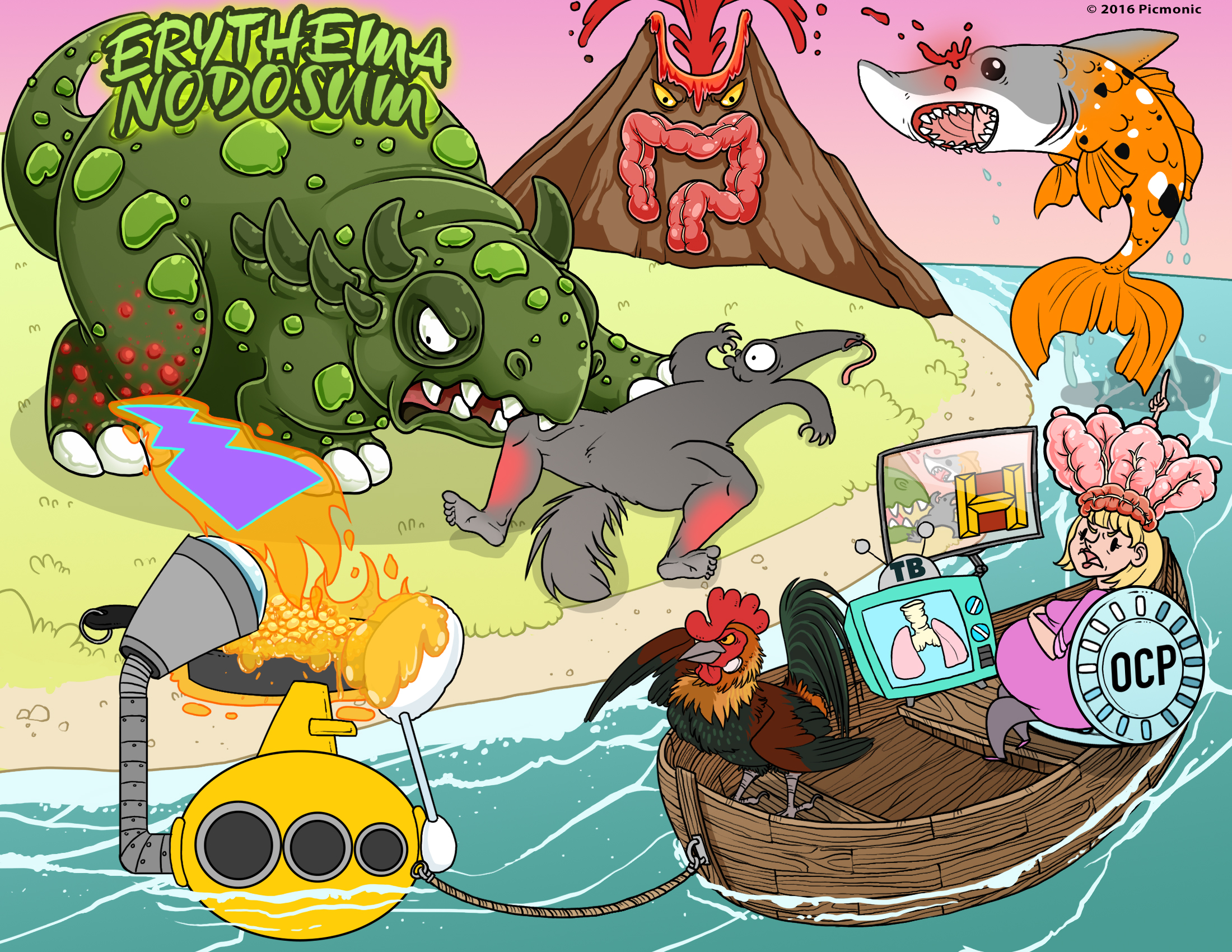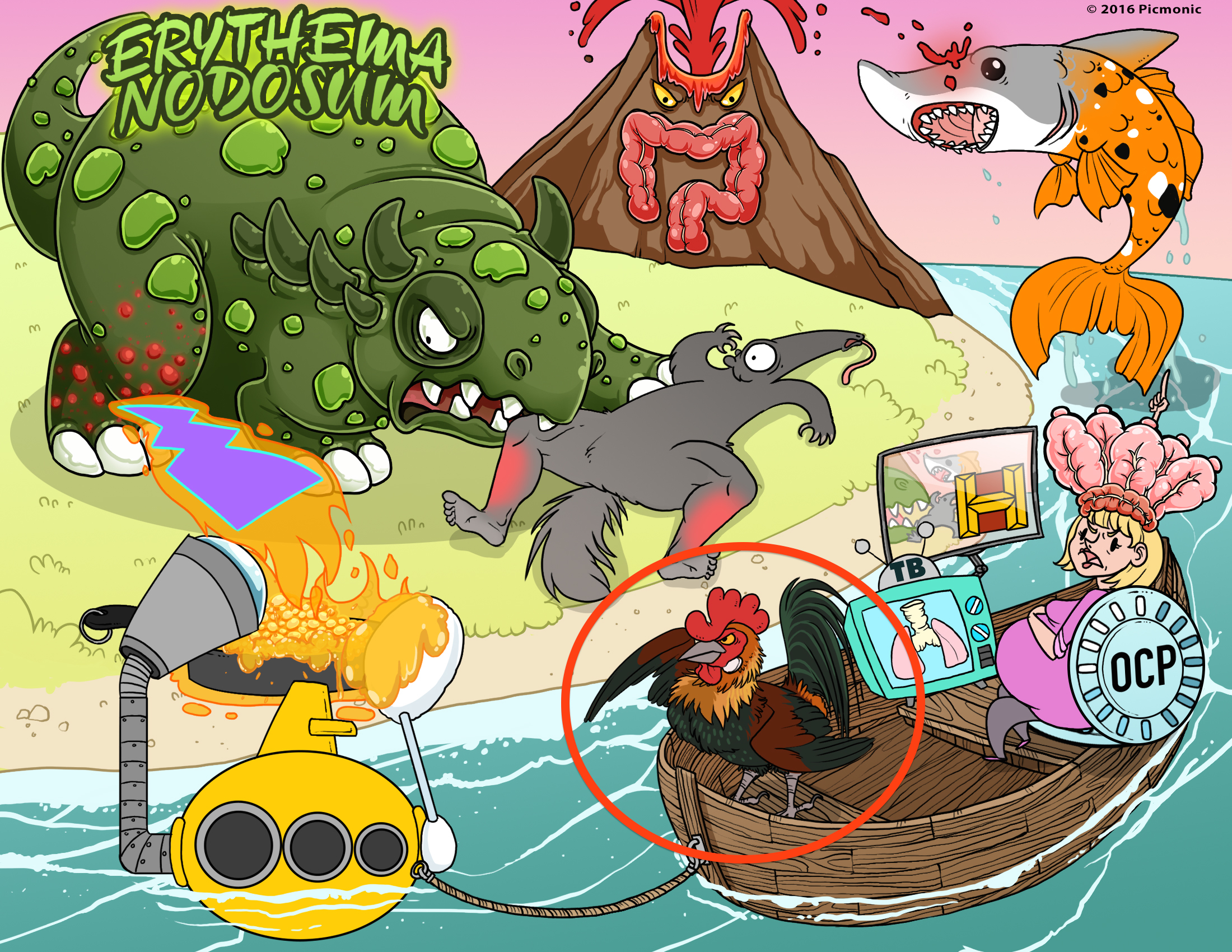It’s been awhile since I used Picmonic. It was my go to medical school resource when I was a first and second-year med student and was even more valuable while I was studying for USMLE step 1 and step 2 CK. The more I used it, the more valuable it became. It is still to this day one of my three favorite medical school resources, which is why I was so excited to team up with Picmonic to help spread the word!
What is Picmonic?
Picmonic is an online app that helps make studying easier, more efficient, and a little bit more fun. Let’s face it; medical school challenges you with a relentless barrage of information that requires absolute dedication to memorizing. And the worst part about studying in medical school is a simple fact that some stuff doesn’t make sense. You just have to memorize it. I’m talking about subjects like biochemistry, nutritional deficiencies, pharmacology, and microbiology. That’s why Picmonic is so amazing. It uses vivid pictures, stories, and wordplay to get all of that expensive medical school facts that you just have to know into your brain!
Let me just show you what I’m talking about
Each subject has a unique Picmonic ‘card’ that uses visual storytelling and pictures as mnemonics to help you remember more. They’re even better than flashcards! This is the Picmonic card for erythema nodosum, and I still remember it and use it to this day during residency. Inevitably during morning report, noon conference, patient presentations, or when I’m teaching my medical students this subject pops up. And my co-residents are just as shocked as my friends in medical school were when I rattle off the disease associated with erythema nodosum, represented by the Nodosaur with red bumps on its legs.

What I also love about Picmonic is that its cast of characters stays consistent throughout the Picmonic universe. For instance, take a look at the erythema nodosum card again down below. You’ll see a ‘cock (rooster) at sea’ representing coccidiomycosis circled in red.

Now check out the card for coccidioidomycosis. It’s the same rooster at sea, again circled in red.

Now take a second look at the coccidiomycosis card, but this time check out the granny-llama representing granulomatous inflammation, circled in yellow below. Now check out the same granny-llama circled in yellow on the Picmonic card for granulomatosis with polyangiitis (Wegeners).

And again, we see the same granny-llama representing granulomatous inflammation on the card for granulomatosis with polyangiitis (Wegeners).

Buy Picmonic Now!
Ultimately, I wholeheartedly believe that Picmonic helped me pass and succeed in medical school and helped me ace USMLE Step 1 and USMLE Step 2 CK (and even bails me out every once in awhile during residency). The more esoteric and difficult to memorize a subject is the more Picmonic flexes its muscles.
So if you’re tired of reading about Picmonic and ready to try it out, here is what you should do:
- Go to https://www.picmonic.com/redeem and enter KittyKatzFree for 2-weeks of free access to Picmonic!
- Once you’re ready to purchase: use my link to get 30% of any fixed term subscription!


I am a distressed mom of a 2nd year student who has now had 3 failures with step 1. The med school review board is set to essentially review and recommend their “routine dismissal” next month. However, he has done very well with practicum and all of his classes thus far. He has the support of his mentor faculty, and otherwise a stellar record. My son finally took the SARS 1.1 screen for adult ADD, and scored 6+. He is seeing a psychiatrist this week for definitive diagnosis, and we his parents are both ADD (I am on prescription therapy, his father not). As a psych provider myself, I suspected this was his hold up. So what options does he have? We are hearing conflicting stories of no ability to transfer to another school even if after clinical assessment and treatment, he passes step 1 in the next 6 months. Is there an coach or consulting organization that I can direct him to, in order to get past this? Thank you in advance for your response, Kixie Belle